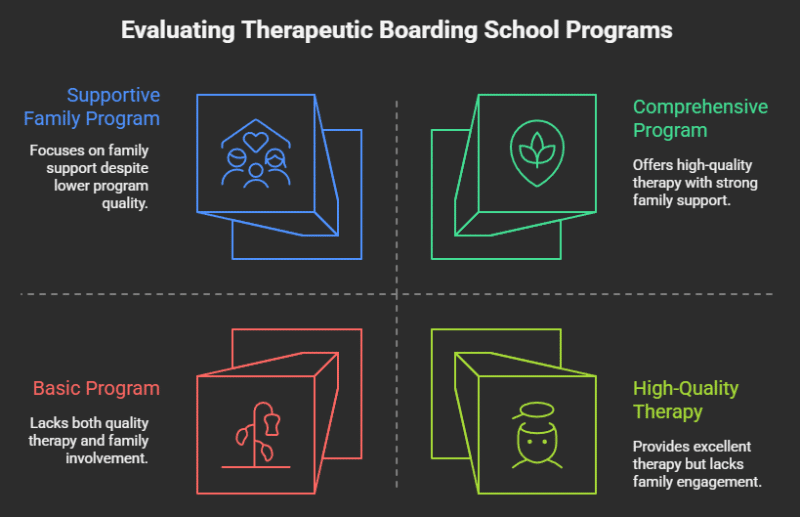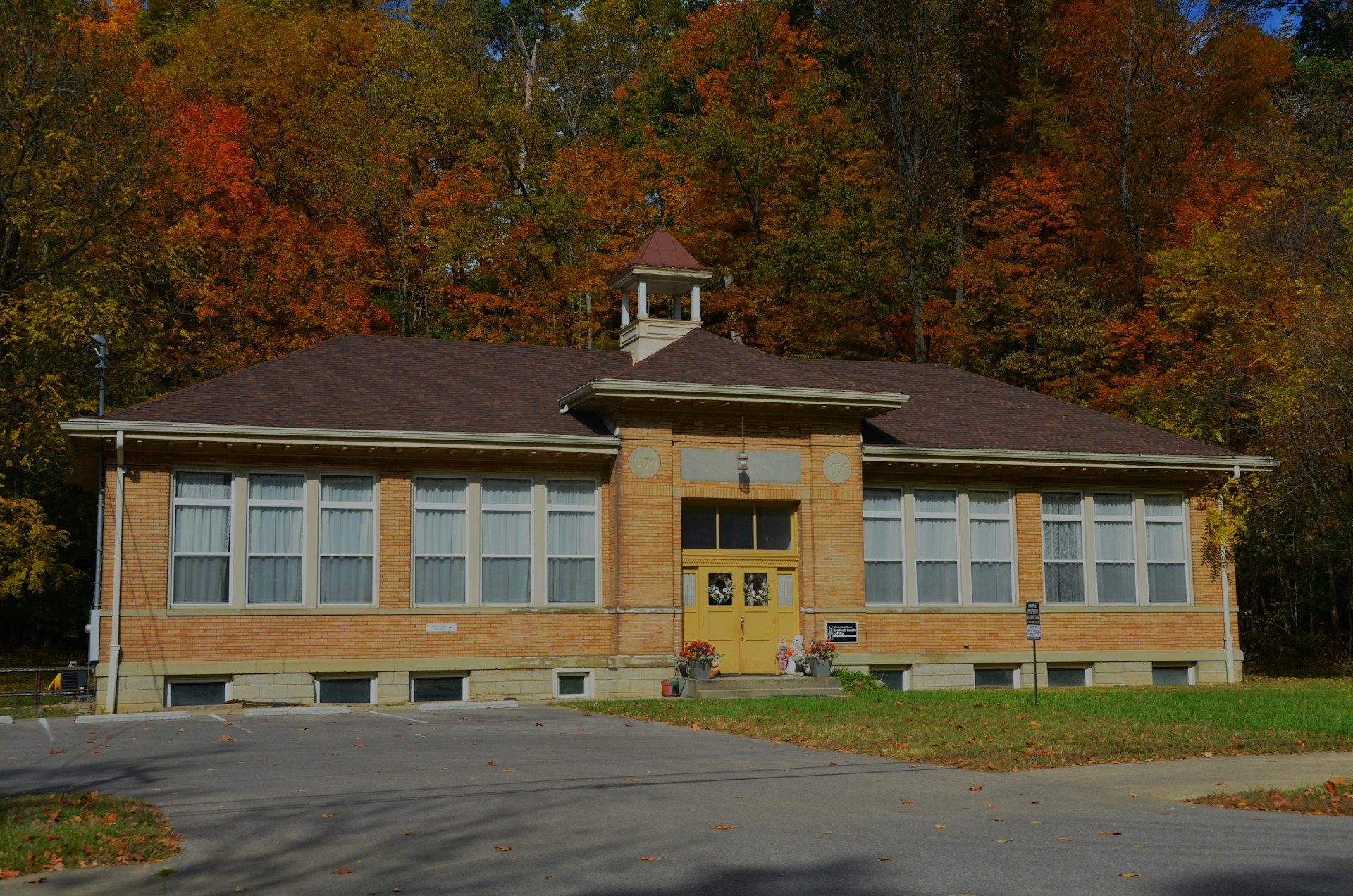Choosing a Therapeutic Boarding School for Troubled Teens is a major decision — one that can shape your teen’s future and bring peace back to your family. But how do you know if a school is truly the right fit?
The best way to find out is simple: ask the right questions during your tour.
A school visit lets you go beyond the brochure. It’s your chance to meet staff, see facilities, observe interactions, and get a feel for the environment where your teen will live and learn. At Help Your Teen Now, we guide families through this process — helping them identify red flags, spot quality programs, and find the support that fits their teen’s unique needs.
Key Takeaways
- Touring Therapeutic Boarding Schools for Troubled Teens helps families make informed, confident decisions.
- Ask about accreditation, therapeutic approach, safety, academics, and family involvement.
- Choose schools that emphasize emotional growth, licensed care, and aftercare planning.
- Working with Help Your Teen Now ensures access to vetted programs and expert guidance.
- Touring is not just about facilities — it’s about finding a program that fits your teen’s emotional and academic needs.
What to Prepare Before Your Tour
Before you set foot on campus, take time to prepare. Research the school’s background, read reviews, and make a list of questions that matter most to your family. You’ll want to cover everything from therapy methods and safety to academic programs and family involvement.
Bring a notebook or digital device — you’ll want to compare notes later as you evaluate multiple schools.
Key Questions to Ask During the Tour
When touring Therapeutic Boarding Schools for Troubled Teens, clarity is power. Here are essential categories and sample questions to guide your visit.
1. Program Accreditation and Licensing
Accreditation ensures that the school meets professional standards for education and therapeutic care.
Ask:
- Is your program licensed by the state and accredited by an educational body?
- Are therapists and staff fully certified and experienced in working with teens?
- How often is your program reviewed by external organizations?
Tip: Schools in Utah often hold accreditation through organizations like the Northwest Accreditation Commission (NWAC) or Cognia — a good indicator of academic quality.
2. Therapeutic Approach and Staff Credentials
The heart of any program is its therapeutic philosophy.
Ask:
- What types of therapy do you offer (CBT, DBT, trauma-informed care, etc.)?
- How frequently will my teen meet one-on-one with a licensed therapist?
- How do you handle dual diagnosis (mental health and substance use)?
- What is the staff-to-student ratio for therapeutic care?
Quality programs personalize therapy for each teen — addressing anxiety, depression, ADHD, defiance, or emotional trauma.
3. Academic Support and Transition Planning
A strong academic program helps teens rebuild confidence and prepare for life after treatment.
Ask:
- Are classes accredited and transferable to traditional schools or colleges?
- How do teachers support students who have fallen behind?
- Is there a structured plan for academic recovery?
- How do you help students transition back home or into a young adult program?
At Help Your Teen Now, we often recommend programs that also provide failure-to-launch support for young adults who need help developing independence and life skills after graduation.
4. Safety, Supervision, and Crisis Management
Your teen’s safety should be non-negotiable.
Ask:
- What safety measures are in place 24/7?
- How do you handle behavioral incidents or crises?
- Are staff trained in de-escalation and trauma-informed responses?
- What medical resources are available on-site or nearby?
The best programs prioritize compassionate care — ensuring that discipline never crosses into punitive or unsafe practices.
5. Family Involvement and Communication
Healing doesn’t happen in isolation. Parents play a critical role in a teen’s recovery.
Ask:
- How often will we receive updates or reports about our teen?
- Do you offer family therapy or parent workshops?
- How do you support families after the teen returns home?
Many Utah-based programs include family weekends, online therapy sessions, and structured aftercare planning to help maintain progress once your teen transitions home.
6. Costs, Scholarships, and Financial Transparency
Therapeutic boarding schools are an investment, so understanding the financial side is key.
Ask:
- What’s included in tuition (therapy, housing, activities, etc.)?
- Are there scholarships, grants, or insurance options available?
- Are there any hidden or additional fees I should expect?
Being upfront about finances can help you plan ahead and avoid surprises later.

Comparison Table: Traditional vs. Therapeutic Boarding School
| Feature | Traditional Boarding School | Therapeutic Boarding School |
|---|---|---|
| Focus | Academics & structure | Therapy, emotional growth & academics |
| Staff | Teachers, dorm staff | Licensed therapists & trained mentors |
| Student Type | Motivated, high-achieving teens | Teens struggling emotionally or behaviorally |
| Goal | College prep | Emotional healing, stability, and life skills |
Why Touring Matters
A tour allows you to move beyond promises. You’ll see how students interact with staff, how facilities are maintained, and whether the school feels nurturing and safe.
Trust your instincts. A quality therapeutic boarding school will welcome your questions and provide clear, transparent answers — never pressure or defensiveness.
Conclusion: Your Next Step Toward Healing
Choosing a therapeutic boarding school is a major step toward helping your teen heal, grow, and succeed. By asking thoughtful questions and touring with purpose, you can ensure your decision is guided by facts — not fear.
If you’re ready to take the next step, Contact Help Your Teen Now to help your teen now. Our team connects families with trusted, accredited programs across the country — so your teen gets the care and structure they deserve.






0 Comments